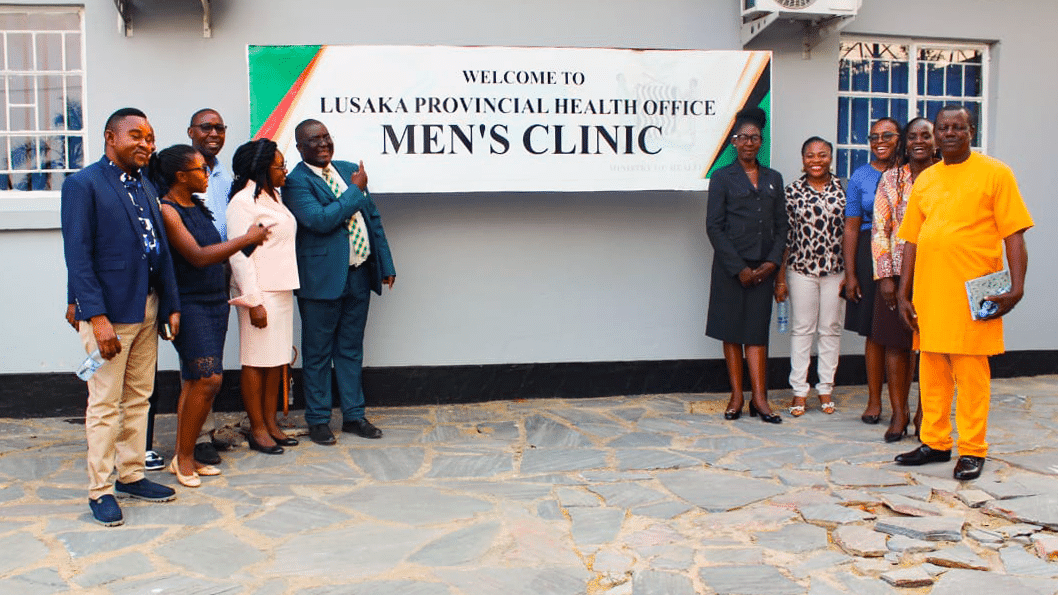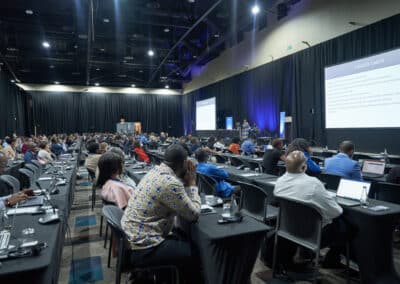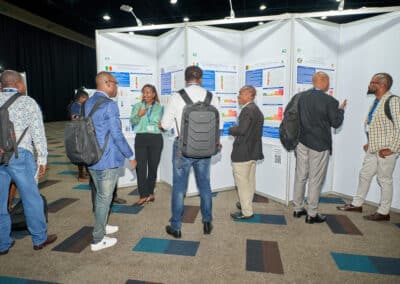Globally, UNAIDS estimates that compared to women, there are 1.3 million more men who are not on antiretroviral treatment (ART) and 920,000 more men who are not virally suppressed. For Nigeria’s National AIDS Control Program, NASCP, designing and scaling up differentiated service delivery (DSD) models tailored to engage and retain men in HIV services effectively is a top priority.
To gain insights into the implementation and scale-up of DSD for men, CQUIN supported a learning visit to Zambia for a delegation from Nigeria. From September 11 to 15, 2023, the five-member Nigeria team learned about Zambia’s DSD models for men, accompanied by two ICAP/CQUIN staff. The Zambia team shared their policies and guidelines driving nationwide DSD scale-up and implementation for men with the visitors from Nigeria and reviewed its best practices and experiences at national, regional, facility, and community levels and monitoring and evaluation systems for the DSD models.
“Nigeria has had some challenges engaging and retaining men in HIV services. Some of these challenges include the refusal of men to disclose sexual contacts, reveal their HIV status to partners, or restart and maintain treatment regimens. We are glad that we could learn from Zambia’s experience encouraging men to form and sustain healthy habits related to HIV care and prevention,” said Peter Nwaokenneya, assistant director for Adult ART, TB/HIV Treatment, Care, and Support for Nigeria’s NASCP.
Zambia has developed policies and strategies explicitly targeting men aged 15-49 years to improve the delivery of HIV services and has an established national scale-up plan for DSD models to increase men’s access to HIV services, including creating men’s clinics within health facilities and community posts. Zambia has also utilized digital platforms to generate demand for HIV testing services among men and implemented an advanced HIV disease (AHD) country staging and implementation framework focused on intensifying AHD screening and management among men to identify and manage HIV cases at an advanced stage more effectively. The Zambia Ministry of Health shared data on how these efforts have significantly enhanced male involvement in health care services in several meeting sessions and site visits to some facilities.
“The men’s clinics, established as departments within facilities, provide an integrated service package incorporating male sexual reproductive health, non-communicable diseases, and STI services as entry points into the HIV program,” said Violet Oramisi, MBChB, MSc, ICAP/CQUIN regional strategic information advisor who participated in the learning visit. “Additionally, these clinics offer fast-track services, tailored to meet the unique medical needs of men and their spouses, effectively increasing male involvement,” she said.
Following the successes of Zambia’s model, the Nigeria team plans to adapt the men’s clinics and community posts model to their country context. Nigeria’s post-visit action plan includes developing an implementation plan for the men’s clinic at both facility and community levels and developing indicators and variables for monitoring and evaluating DSD models for men.






